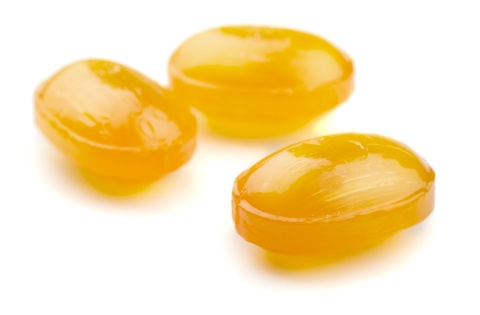.png?width=560&name=1stclassmed.com%20(1).png)
It can be a pain to get into the doctors last minute for a cough, so many of us run to the nearest convenience store and grab some over-the-counter cough medications.
But Do They Really Work?
There are two types of OTC (over-the-counter) cough medications available to us without a trip to the doctor, antitussives and expectorants.
Antitussives are used to suppress your cough by blocking the cough reflex, while expectorants are used to thin mucus in the airways.
According to Norman Edelman, the senior scientific advisor at the American Lung Association, there is no “good evidence that cough suppressants [antitussives] and expectorants help with cough”.
We simply take OTC cough medications in attempt of getting some form of relief, versus having to wait any longer to see a doctor.
People start to feel relief after only a few days, and credit it to the OTC medications, when it reality it is common for the cough to go away on its own.
For those with COPD, chronic bronchitis, or even the common cold, OTC cough medications have not been recommended to use.
There are also different types of coughs that OTC medications may not help with.
What is in the Medication?
Mucokinetics are a class of drugs that help clear mucus from their airways, lungs, bronchi and trachea, common names are carbocisteine, ambroxol and bromhexine.
Expectorants increase the production of mucus and phlegm, while making it easier on your body to cough, common names are acetylcysteine and guaifenesin.
Antitussives are cough suppressants, which help suppress the cough itself, common names are codeine, pholcodine, dextromethorphan, noscapine and butamirate.
Antihistamines are used to numb areas associated with allergies, such as a runny nose, and itchy/watery eyes.
Common types of antihistamines are diphenhydramine, chlorpheniramine, brompheniramine, loratadine, and cetirizine.
Decongestants help with congestion and sinus inflammation or infection, common names are ephedrine, phenylephrine and oxymetazoline.
Syrup, like sugar water or honey, may be added to sweeten the medication as well as help coat the throat in order to reduce coughing by coating the throat.
Medical Concerns with OTC Medications
If you choose to take over-the-counter medication, either for yourself or someone else, read each medication box to know the risks of that specific medication.
OTC medication is never recommended to young children, each medication may have a different minimum age, so check the age recommended on the back of the box.
For respiratory diseases like asthma, cough-suppressing medication can worsen or cause complications.
Over-the-counter cough medication can also become addicting, and long term possibly cause death.
It is becoming more common for young teens to use cough medications to get a high feeling, this abuse can end in severe complications or even death.
Acetaminophen and ibuprofen, commonly taken during a cold to help with fever reduction can cause liver and kidney damage if taken too often or if combined with another medication that may contain acetaminophen or ibuprofen.
It is very important to read all labels and contact your doctor with any questions you may have about medication, combining medications and other treatment options.
Other Options?

If you still prefer to run to the store when you need medication, cough drops are helpful.
Cough drops are able to coat the throat and numb the throat to stop the urge to cough.
Honey is a great option for those who are dealing with a nasty cough, or just a sore throat from talking a lot.
Though honey is not suitable for young children (should be 1+ years old in order to lower the risk of botulism), for adult, it can work miracles.
Either taken by a tablespoon dose, or mixed in with warm tea, honey can help coat your throat and keep you from coughing through the night.
Honey has shown to be as effective, if not better than an over-the-counter cough suppressant and it is lower in cost than many cough medications.
Salt water is also known to help clean out the throat and reduce the urge to cough.
Mixing in salt to warm water and gargling the mixture can help break down any mucus buildup and kill bacteria in the throat.
By doing this every few hours, it can help keep your throat clean and help your body heal faster.
Baking soda can be used in the same method as salt water, try mixing 1 cup of warm water with ¼ teaspoon of baking soda and 1/8 teaspoon of salt.
Try gargling the mixture every few hours in order to kill bacteria and help prevent the growth of yeast or fungi in the throat.
If that isn’t enough, try using a humidifier in the room you are sleeping in, as moisture can help the throat from feeling too scratchy.
Another important part of fighting a cough is to make sure you stay hydrated.
By drinking plenty of water you can help keep your throat clear and help keep your body hydrated while it is fighting an illness.

Vitamin C is not recommended to fight a cold once you are sick, but studies have shown that it can be beneficial to take vitamin c regularly in order to help with respiratory defense and other minor but important health factors.
Taking large doses of vitamin c once you are sick has been proven to not help shorten or lessen the severity of a common cold.
Zinc may be a good option for those who recently got sick, as a 2003 study proved that zinc can help reduce the length and severity of symptoms of the common cold when taken within 24 hours of when the symptoms appear.
Conclusion
Over-the-counter cough medications may not truly work, but for those taking them, they do not cause any harm as long as the right dose has been taken over the correct time-frame.
Though the medication may seem like it is working, there are many studies that have disproved their success.
There are a handful of other “home remedies” that may be more helpful to your cough and common cold.
If after a few days you feel your symptoms are not improving, meeting with your doctor to see if it is more than just a common cold may be better for your health.



